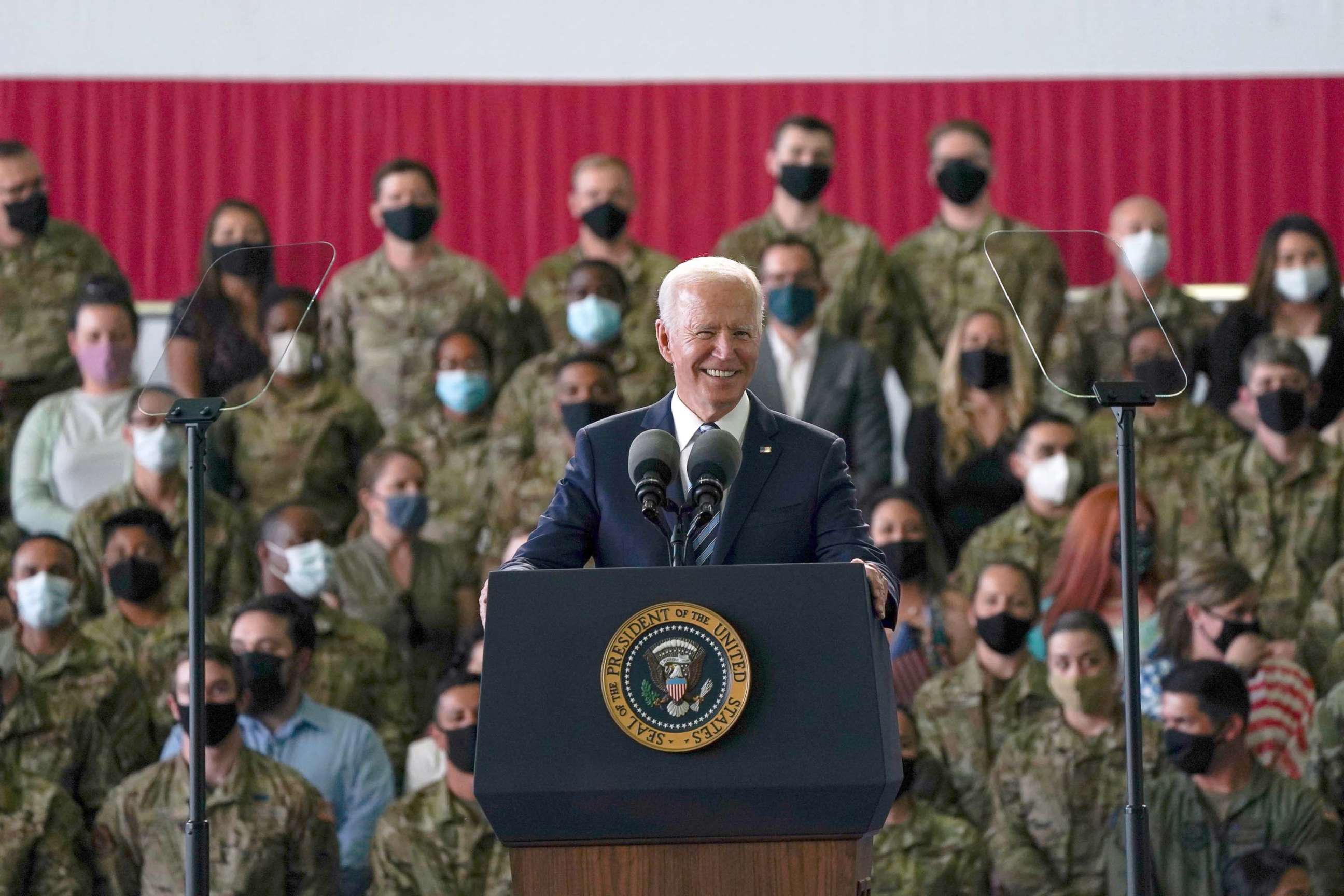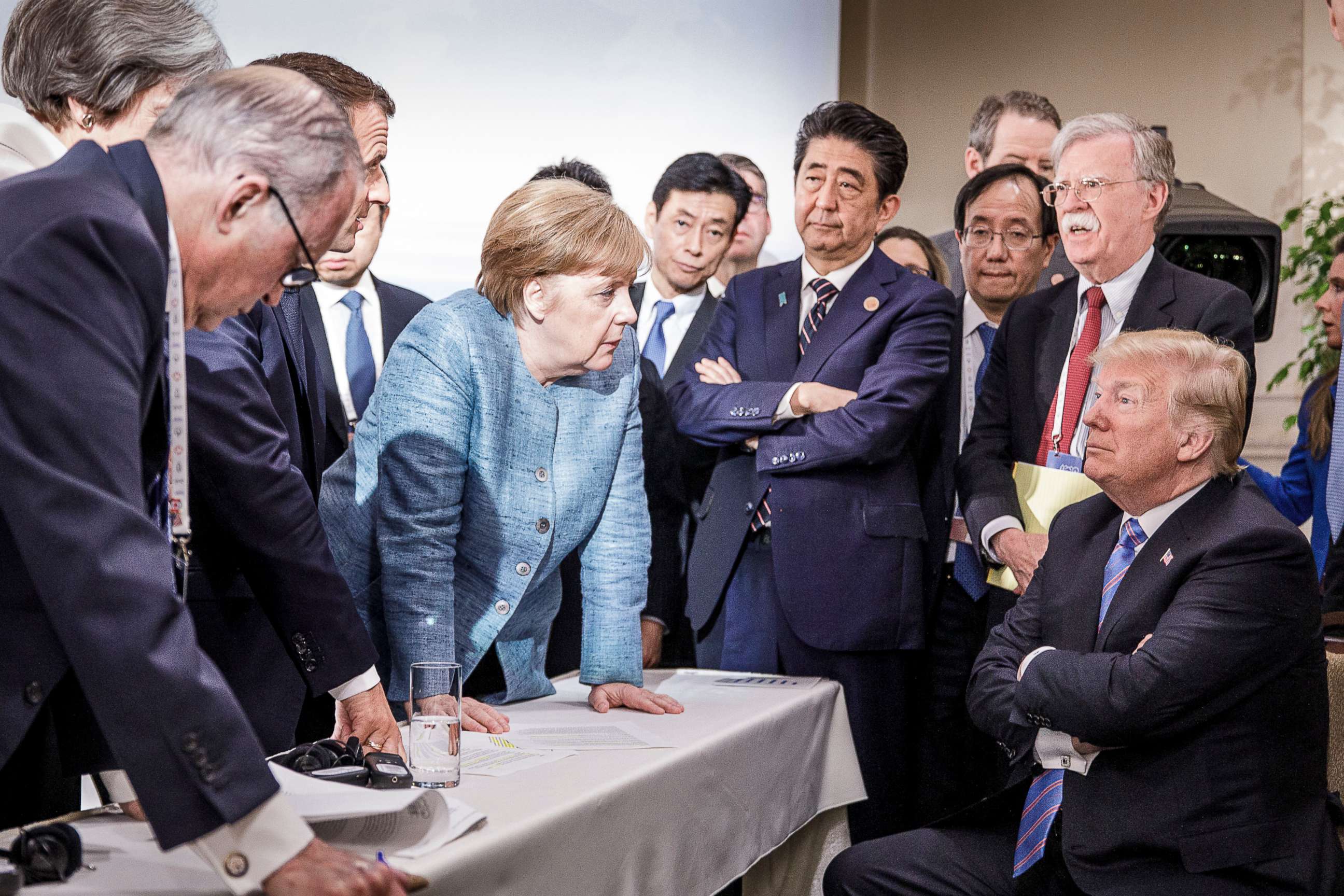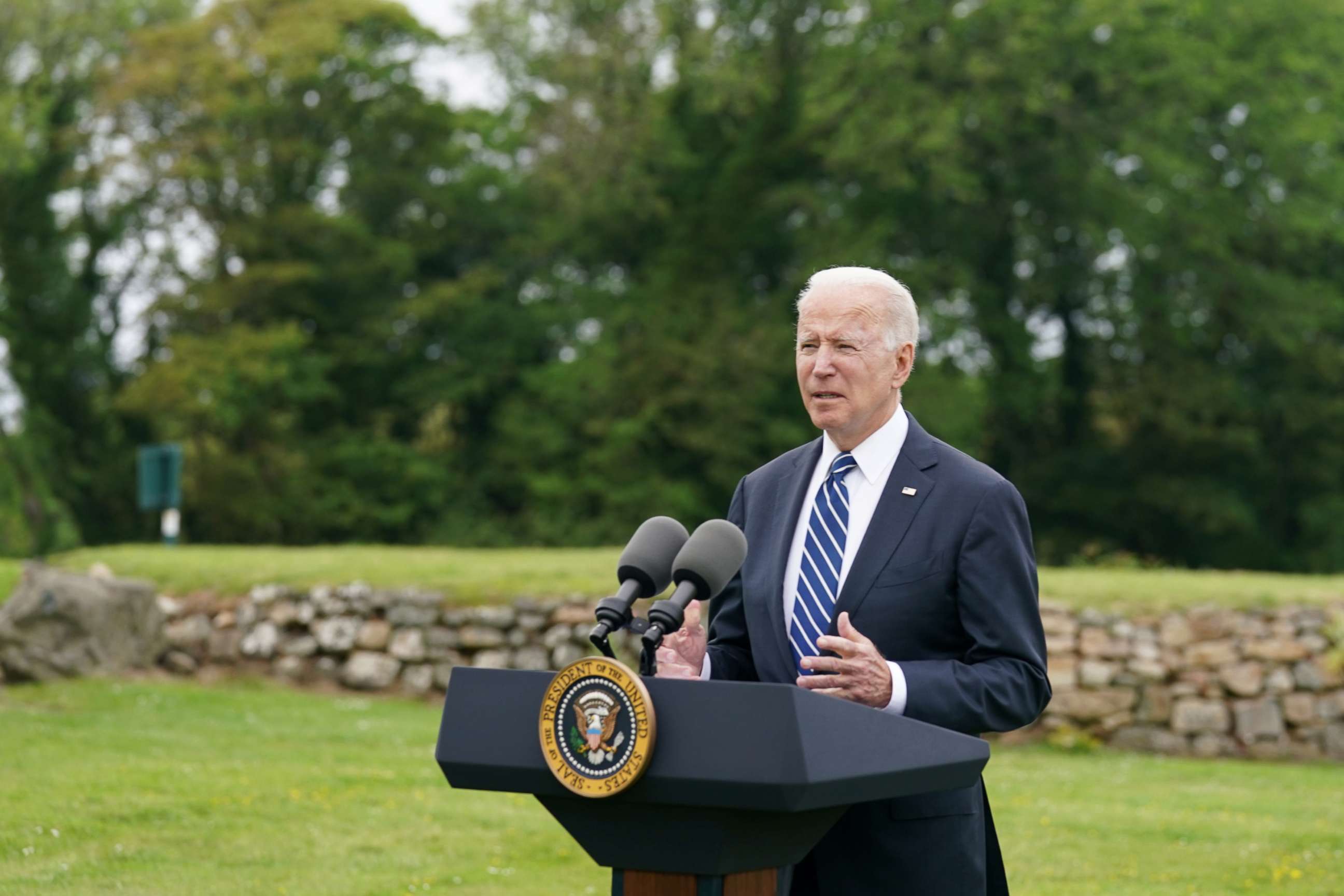Biden's most important message overseas: He's not Trump
Biden aims to return a sense of normalcy to the G-7 summit and with NATO.
As President Joe Biden makes his presidential debut on the world stage, meeting with close allies at the G-7 summit Friday, his greatest task is accomplished by the simple fact that he is not Donald Trump.
Following four years of Trump’s "America First" approach to foreign policy that unmoored the United States’ long-held position as the world leader on global initiatives, Biden’s trip, as much as anything else, is about a return to normal.
"At every point along the way, we're going to make it clear that the United States is back," he said Wednesday, in his first remarks after touching down overseas, addressing U.S. troops stationed in England.
"Democracies of the world are standing together to tackle the toughest challenges and the issues that matter most to our future, that we're committed to leading with strength, defending our values, and delivering for our people," Biden said.

Those are reassuring words for members of the G-7, who are set to champion multilateralism in Cornwall on Friday, making a shared commitment to a global vaccination campaign and declare their shared support for a minimum corporate tax rate of 15%.
Gone is the distrust of multilateralism that was a trademark of Trump’s unpredictable policy shifts and personal spats with close allies.
The 2018 G-7 summit was particularly chaotic. Trump famously departed early and rejected a joint communique. The tensions of that summit were captured in a famous photograph showing the former president seated with his arms crossed, as German Chancellor Angela Merkel leans toward Trump and other leaders stand huddled around.

On the next leg of Biden’s itinerary, a stop in Brussels for a NATO summit, he will return to the familiar messages that the alliance had long taken for granted from American leaders but had come into question under Trump.
The former president sent shockwaves through the NATO alliance by at times questioning its utility, making threats to other members to increase their contributions, and during his first visit to the NATO headquarters in 2017, showing initial reluctance to explicitly express the U.S. commitment to the alliance’s bedrock Article 5 collective defense treaty.
Biden will represent a return to normal.
He is set to strongly reaffirm the United States’ commitment to the alliance and Article 5, which has only been activated once in the history of the alliance in defense of the U.S. following the attacks of Sept. 11.
When Biden is in Brussels, his national security adviser told reporters it is a given he will "of course" reiterate his strong commitment to the allies' common defense.
"He feels the need to restate support for Article 5 as often as he is able to do so because for him, it's an article of faith -- for President Joe Biden and for the United States of America. And so he will proclaim that loudly and proudly," Jake Sullivan said.

On the final stop of his trip, for a high-stakes summit with Russian President Vladimir Putin that comes amid rising tensions and a string of cyberattacks on the U.S. emanating from Russian soil, there won’t be a hint of the coziness that existed between his predecessor and Putin.
Biden has made clear that when he sits down with Putin, he won’t hold back.
Teasing his summit with the Russian leader, Biden said Wednesday he plans to "let him know what I want him to know."
"We are not seeking conflict with Russia. We want a stable, predictable relationship. Our two nations share incredible responsibilities and, among them, ensuring strategic stability and upholding arms control agreements," Biden said.







